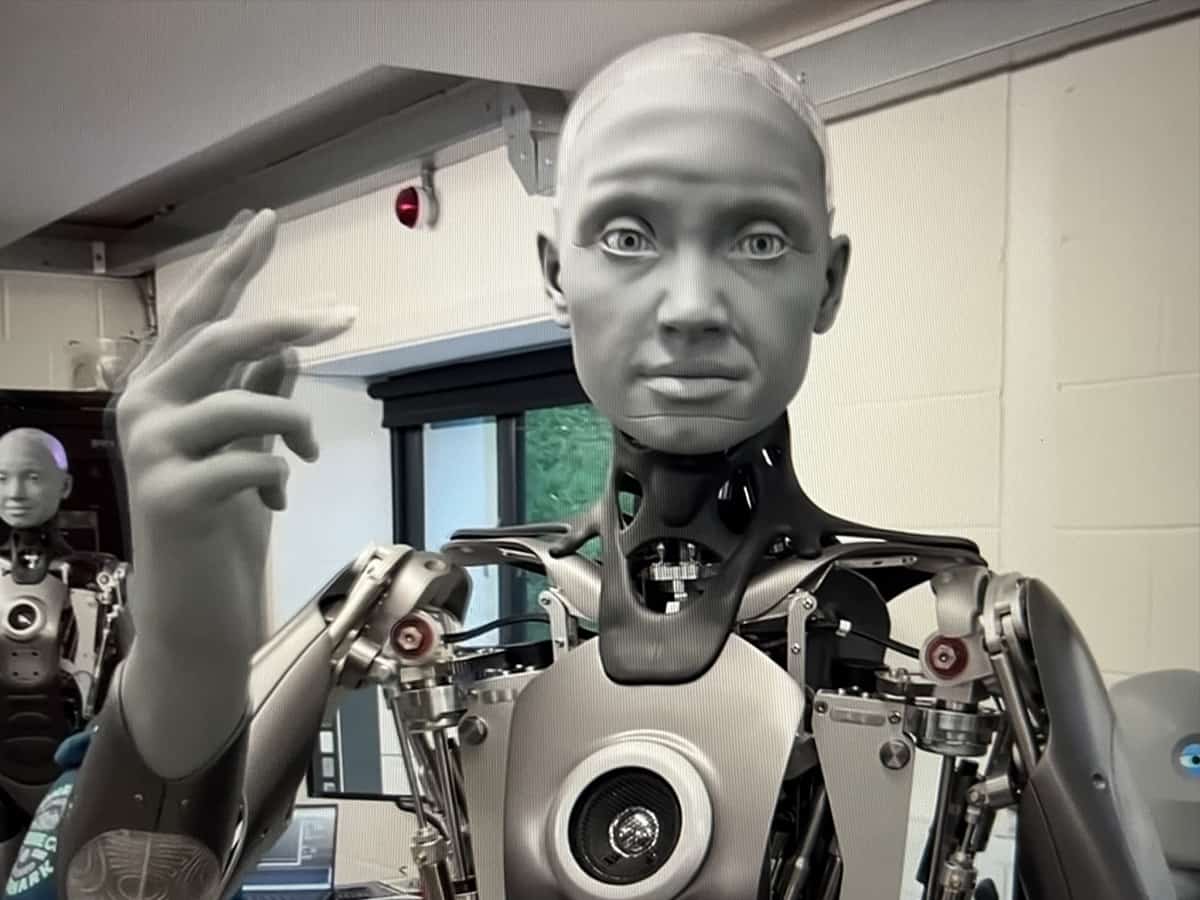
British film's 'New Wave" style was created in the 1960s. Its aim was to depict a wider spectrum of society, and it brought renewed American financial interest to British film. The style was distinguished by historical epics and spy thrillers as well as'swinging London' movies.
BBC
The BBC has a lot to be proud of - its impartial journalism and old-fashioned values, as well as its ability to unite the nation during major national moments. But it is also facing some tough challenges. For one thing, the government sees the BBC as an item on the political agenda - and they see it as a bribe to its supporters and financial backers. The BBC must simultaneously adapt to the needs of its rapidly changing audience, and the subsequent shift in interest or technology.
BBC Radio 4
Recent cross-party MPs from the north of England have argued for cultural levelling on BBC Radio 4. The group asserts that everyone should be able to access cultural content, regardless their income or social class.

ITV
If you love British culture, ITV may interest you. It is a popular television network with millions of viewers each week. The network's Uncommon project seeks to challenge viewers perceptions of it by creating stories that deal with the most pressing UK issues.
ITV's Goldilocks and the Three Bears
ITV's Goldilocks and The Three Bears, a musical version the classic children's tale, is available on ITV. Robert Southey has written the story. Leroy Anderson composed the musical score and Joan Ford wrote the lyrics. Bobby Troup made a rap version of one of these songs. It was recorded for the first time by Page Cavanaugh on April 26, 1946. The song has since been retitled, "Three Bears Rap", also credited as "anonymous".
Pubs on soap operas
Pubs play an important role in British soap operas. Hollyoaks is a popular TV series where the Dog in the Pond was used as a meeting place. Other shows use the pub as a fictional place that serves local beer.
Britannia
Britannia, a name that is associated with the British country has a long tradition. Although the name originated in ancient times, Britannia is usually associated with the British Isles' Celtic rulers. This symbol predates the conquest of the British Isles by the Romans. The symbol is based on the Roman goddess Minerva, which was an appropriation of the Greek goddess Athena. It has roots in the Phoenician goddess Barati (recognized in the Indian Vedas the Goddess Waters).

Royal family
It is well-known how important the Royal Family is to British culture. The Royal Family's members take part in various charitable and public functions. These include attending State funerals, celebrating national holidays, and meeting with various organizations. The Royal Family holds over 2000 engagements every year. These include community visits and welcoming Heads to State. Members of the Royal Family also receive numerous awards, including the Order of Merit.
FAQ
What does pop culture teach us?
Modern society places more emphasis on material possessions than other things. This is especially true with young people. They spend hours daily looking at screens. They look at screens and watch videos, as well as play video games and surf the Internet. All of this distracts them from focusing on school work. This causes them to fail classes.
It is a world where everyone wants in. That means being popular. Popularity is dependent on having money, clothes, or other possessions. Some people do this by doing things that aren’t right.
We are too dependent upon technology. Technology has given us access to all kinds of information. Not all information is correct. False rumors are all over the Internet. These rumors spread quickly because people share them on social media sites. It's easy to post something without checking whether it's true.
People have lost their ability for critical thinking. They believe everything they read on the Internet. They trust what they hear on television and in magazines. They stop thinking for them selves. Instead, they follow the flow of others.
We lose control when we rely on other people to tell us what's up. Pop culture teaches that we should depend on other people. This can make us lazy. Although the truth is out there and we often don't find it, it can make us lazy.
Who first coined the term Pop Music
Frank Zappa invented the concept. He used the word pop music to describe his style of music.
He said that he wanted music to appeal to everyone. That's why he called his music pop music.
Zappa also invented the phrase "You Know It's Pop when ..."", which signifies that something is popular if there are many people who enjoy it. Michael Jackson's Thriller albums are among the most-sold.
Zappa's definitions of pop music are different than the current. Today, pop music includes all types of music. Back then, pop music was limited to certain types of music.
What are some positive features of pop culture?
There are some things about pop culture that aren't bad. Pop culture gives people something to talk. It allows people to express creativity. Artists can use pop culture to help promote their work.
In my opinion, the best thing about pop culture is that it brings people together. Everyone wants to watch the exact same shows. Everyone enjoys the same music. People like the same movies. Pop culture allows us all to connect.
The problem is that not all pop culture is healthy. Many films glorify violence. Some television programs make fun of people who have mental disabilities. Others encourage their fans and followers to get high.
What should we do about the negative aspects pop culture?
We should try not to allow pop culture to influence us. It shouldn't influence us. It can cause problems for our health. It can also lead to crime. It can even impact our relationships.
Pop culture should be considered as a way to help or hinder society. Is it promoting good values? Are people being influenced to do bad things?
Lastly, let's ask ourselves if we are content with the world we live. Do we enjoy the music that we listen to? The TV shows we watch? The clothes we wear
We must be responsible for our actions if we are to care about the future. It is up to us to choose the kind of world that we want. Once we have decided what kind of world we want, then we can choose the best pop culture.
How did pop culture develop?
Technology drove the development of popular culture. It developed with the rise of mobile technology. The invention of the radio made mass communication possible. This allowed for the rise of television and the birth of the internet.
Computers became popular at home when people were introduced to computer games. These games were originally played on consoles like Sony Playstation 3 or the Nintendo Wii. They are now free to download online. Many people choose to play videogames instead of watching television.
Video games are very popular with children and teenagers. These games can be played by one person or with others via the internet. Call Of Duty games and Grand Theft Auto have a lot of violence. Some parents are worried about their children playing these video games. Others find it thrilling to watch what happens when one of their characters dies.
Music videos are another way in which pop culture influences youth. They are a great way to learn about celebrity news and the latest trends. They are very popular with young people. It is clear that music plays a significant role in our lives.
Music videos are often created by artists who use special effects to enhance their songs. Rappers may use makeup and wigs to make themselves more appealing. Other musicians put themselves through extreme physical challenges to show off their bodies. Many singers sing while wearing costumes.
Music is available in a wide variety of formats today. You can find any type of music that you desire. However, this isn’t always good news. Music can be a motivator for violence. People get angry if they hear certain words or lyrics. Sometimes they even commit crime.
This happened recently with rapper 50 Cent. The line from his song Get Rich Or Die Trying is "I'm going down a motherfucker / I don’t know why, but I might." Someone heard this song and thought it meant that he was going to kill someone. A man threatened to kill him, and called him. 50 Cent changed the lyrics. It now reads: "I'll shoot an inchch down/ I'm not sure why, but I may."
Popular culture is essential. We must understand its effects on us. If we don't, we won't be able to protect ourselves against its adverse effects.
What is pop-media culture?
Pop culture is everywhere. It is everywhere: TV, radios, films, music, magazines and newspapers, websites, social media, etc. It's all around us 24 hours a day. It affects everything from music to clothing and food to politics and religion. What is pop culture exactly? Wikipedia states that pop culture refers to products and ideas designed for mass consumption. Most people believe that pop culture refers to movies, television, music, fashion, or other entertainment. Pop culture goes beyond entertainment. The term describes anything consumed by the masses, such as video games, sports, toys, clothing, fast food, political campaigns, and many others.
Why is pop music popular?
Pop music is loved because it is enjoyable! Pop music makes you happy and gives you a sense of freedom. Pop music allows people to be free from any limitations and think about only themselves. They don't need to worry about what others think. This is why pop music is so loved. People love songs that make them happy. Turn on the radio to hear upbeat music if you're feeling low. You might even find yourself singing along. This is why pop music has been so successful over the years.
What are some examples of pop culture in today's world?
Pop Culture refers to the art form of 21st century. Pop Culture covers all aspects of popular entertainment. It includes music, film, TV, video game, fashion, advertising, comics and so on. This term was created by Neil Postman, author of Amusing Ourselves and Death (1985). Pop is a type of mass communication that relies on cheap tricks or formulaic devices to give the illusion of spontaneity.
He did however point out that most people don't feel genuine enjoyment because they are trained to seek media experiences which make them feel superior. He also argued that cultural expression has contributed to the decline in critical thinking skills among young adults.
Pop culture can also be referred to by the terms popular culture or consumerism.
Statistics
- In 1987, US films captured 56% of the European film market. (socialsci.libretexts.org)
- According to CNBC.com, “more than 70% of the film's revenue came from countries outside the US” (https://www.cnbc.com/2019/01/08/aqua...nal-sales.html, ret. 8/18/19). (socialsci.libretexts.org)
- Less than a decade later, that statistic rose to 90% (Dager, n.d.). (socialsci.libretexts.org)
- Recently, the market share across Western Europe has ranged from 60-75% (Hopewell, 2013). (socialsci.libretexts.org)
- [17][18][19]Definition[edit]According to author John Storey, there are various definitions of popular culture. (en.wikipedia.org)
External Links
How To
What are some famous pop culture references?
Space travel was a popular topic in the 1960s. Star Trek was the most famous TV series of that era.
From 1966-1969, the original series aired exclusively on NBC. It starred William Shatner as Captain Kirk, Leonard Nimoy as Mr. Spock, DeForest Kelley as Dr. McCoy, James Doohan as Scotty, George Takei as Sulu, Majel Barrett Roddenberry as Uhura, Nichelle Nichols as Lieutenant Nyota Uhura, Walter Koenig as Pavel Chekov, and Grace Lee Whitney as Yeoman Janice Rand. (Wikipedia)
In 1967, Paramount Pictures released the first feature movie based on the series. Paramount Pictures released "Star Trek" as the title. Robert Wise directed this movie. The cast included William Shatner. Leonard Nimoy. DeForest Kelley. James Doohan. Walter Koenig. Majel Barrett. Roland Nichelle Nichols. George Takei. Grace Lee Whitney. (Wikipedia)
The second season began airing in 1968. This second season focused on the crew's journey back in 1969. (Wikipedia)
The television series' third season began airing in 1971. The third season featured a new character, Commander Richard A. Morn. He was a Starfleet officers who was originally born on Earth 2063. (Wikipedia)
There was also a live-action spinoff, "Star Trek: Planet of the Apes" during this time. It aired in 1972 and 1974. (Wikipedia)
The television series premiered its fourth season in 1973. The fourth season featured two new characters, Ensign Ro Laren (Lt. Ilia) and Ensign Ro Laren (Ensign Ro Laren). Marina Sirtis was the one who played them both. (Wikipedia)
The fifth season of the TV series premiered in 1975. This was the final season before the series went off-air. (Wikipedia)
After the TV series was cancelled, there were many attempts to bring it back. Some of them included a 1977 pilot episode entitled "Where No Man Has Gone Before," which failed to find a network or studio partner. (Wikipedia)
Star Trek: New Voyages, a 1998 animated series, was also produced. It aired only 13 episodes. (Wikipedia).
The sixth season of the television series was returned to TV in 2009 after a seven year hiatus. It was called "Enterprise" It ran for five seasons until 2013. (Wikipedia)
Also, there were three feature films made in this time period. The first film was released in 1979. It was known as "Star Trek: The Motion Picture." Nicholas Meyer directed it. It starred William Shatner and James Doohan as well as Leonard Nimoy and Walter Koenig. Majel Barrett Roddy and Ricardo Montalban were also featured in the film. (Wikipedia)
The two next movies were released in 1982, and 1987, respectively. They were "Star Trek II - The Wrath of Khan", and "Star Trek III - The Search For Spock". Nicholas Meyer directed these films. (Wikipedia)
In 2001, the seventh season of the television series aired. It was entitled "Encounter at Farpoint". It was the debut episode of the show's era without guest stars. (Wikipedia)
2005 was the last episode of the television series. It was called "All Good Things ...".". It was written by Ronald D. Moore. David Livingston directed it. (Wikipedia.)
In 2008, a brand new Star Trek TV show premiered. It was called "Trek Nation". It is currently being aired on CBS. (Wikipedia). The story of "Trek Nation", a group of people coming from different walks of society, who form their own United Federation of Planets. Their goal: to help other worlds reach peace. (Wikipedia). "Trek Nation", which is a concept showing how diverse people can unite and create good, is very intriguing. (YouTube Video)
I think you should read some books about the timeline of Star Trek. Gary Wolfe's Star Trek Chronology is a great place to start. There are many more books online.